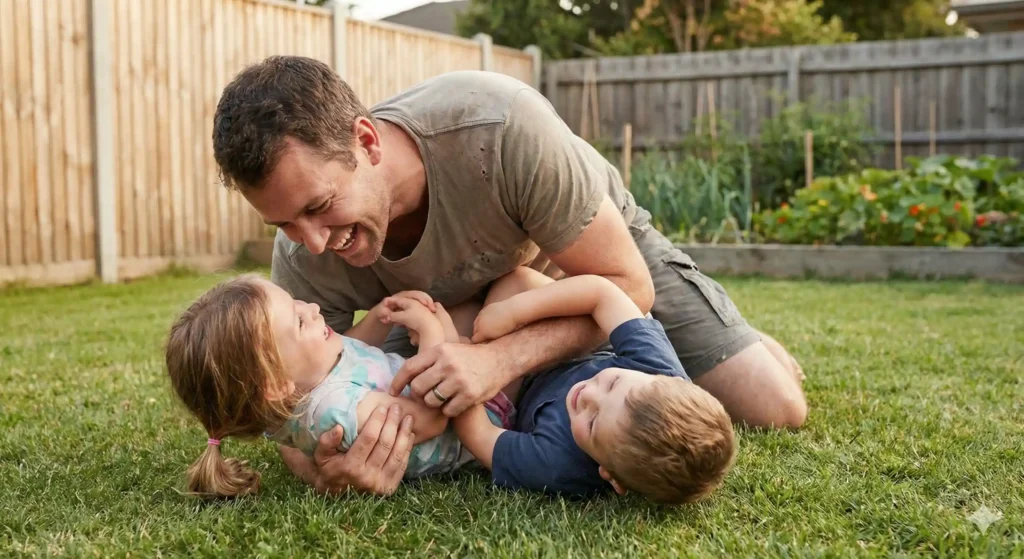Signing the divorce papers feels like the end of the world.
The silence in the house is deafening. The weekends without the kids feel like torture. And the thought of going on a “first date” again? It feels terrifying, exhausting, and frankly, impossible.
You might be asking yourself: “Am I damaged goods?” “Who would want a 40-something single parent?” “Do I even remember how to flirt?”
I have worked with hundreds of divorcés at PairPulse, and I can tell you this: Your life isn’t over. It’s just the sequel.
And often, the sequel is better than the original.
But dating after divorce isn’t the same as dating in your 20s. The stakes are higher (kids, assets, baggage), but your tolerance for nonsense is lower. In this guide, we are going to navigate the messy, scary, beautiful process of finding love again—not just a rebound, but a love that actually fits who you are now.

1. The “Autopsy” Phase: Why You Can’t Skip the Grief
Before you download Tinder, you have to do the work.
Many people rush into a new relationship to numb the pain of the divorce. We call this a “Narcotic Relationship”—using a person as a painkiller.
But here is the hard truth: If you don’t heal the wound, you will bleed on people who didn’t cut you.
The 1-Year Rule (Flexible)
Psychologists generally recommend taking significant time off before dating seriously. Why? Because you need to rediscover who “I” am outside of “We.”
- The Identity Audit: Who are you when you aren’t a husband or a wife? What do you like to eat? What movies do you like?
- The Autopsy: You need to understand your role in the divorce. Even if your ex cheated, what patterns did you ignore? If you don’t learn the lesson, you will date your ex’s clone in a different body.
2. The “Ghost of the Ex”: Stop Comparing
When you start dating, your ex will be the third wheel on every date.
- “He chews loudly, just like Mike.”
- “She is controlling, just like Sarah.”
This is the brain’s way of trying to protect you. It is scanning for threats. But it also blinds you to potential happiness.
The “Blank Slate” Technique
When you meet someone new, consciously remind yourself: “This is a new person with a new history.”
If you find yourself talking about your ex on the first date for more than 5 minutes, you aren’t ready. A date is an audition for the future, not a therapy session for the past.
3. Dating with Kids: The “Package Deal” Reality
If you are a single parent, the game is completely different. You aren’t just looking for a partner; you are vetting a potential stepparent.
According to the American Psychological Association (APA), blended families face unique stress factors that traditional families don’t.
The 3 Golden Rules of Single Parent Dating:
- The 6-Month Rule: Do not—I repeat, do not—introduce a date to your children until you have been exclusively dating for at least 6 months. Kids bond quickly. If you break up, they experience a second “mini-divorce.”
- No “Sleepovers” When Kids Are Home: Keep your romantic life separate until the relationship is serious. Your home is their sanctuary.
- The “Priority” Talk: Tell your date early: “My kids come first. If they get sick, I will cancel our date. If you can’t handle that, we aren’t a match.” Their reaction will tell you everything you need to know.

4. Redefining Your “Type”: Why You Need an Upgrade
Albert Einstein said, “Insanity is doing the same thing over and over and expecting different results.”
Look at your ex. That was your “type.”
- Maybe you love the “Bad Boy” / “Project.”
- Maybe you love the “Damsel in Distress.”
How did that work out for you?
The Pivot:
Post-divorce is the time to date against type.
If you always dated “exciting but unstable,” try “boring but reliable.”
- Chemistry vs. Compatibility: Chemistry is the spark; compatibility is the fireplace. Sparks burn out; fireplaces keep you warm for decades.
Pro Tip: Not sure what you actually need in a partner now that you’ve matured? Use our Couple Compatibility Score to evaluate new potential partners based on values, not just vibes.
5. Overcoming the “Trust Trauma”
If your marriage ended due to infidelity or betrayal, trust feels like a dangerous luxury.
You might find yourself snooping on your new partner’s phone or waiting for the other shoe to drop.
The concept of “Smart Trust”
Trust isn’t a light switch (On/Off). It’s a dimmer switch.
- Blind Trust: “I trust you completely immediately.” (Naive).
- Distrust: “I trust no one.” (Lonely).
- Smart Trust: “I trust you a little. You show up on time. I trust you a little more. You tell the truth. I trust you more.”
Let people earn your trust in increments.
6. The Online Dating Jungle (For the Over-40s)
If you haven’t dated since 2010, the apps will shock you.
- Ghosting: People disappear without explanation. It’s not personal; it’s the culture.
- catfishing: People lie about their age/photos.
Survival Guide for Divorcés:
- Be Honest in Your Bio: Don’t hide your age or your kids. “Proud dad of two,” filters out the people who don’t want kids. Good riddance.
- Recent Photos Only: Do not use a photo from 10 years ago. When you show up looking older, you start the date with a lie.
- Video Call First: Before you waste money on dinner, do a 10-minute FaceTime. Check the vibe.
7. The “First First Date”: Managing the Anxiety
You are sitting in the car outside the restaurant. Your palms are sweating. You feel like you are going to vomit.
This is normal.
The “Rusty” Disclaimer
It is okay to be vulnerable.
- Say this: “I have to be honest, this is my first date in 15 years, so if I seem a little awkward, that’s why.”
- Why it works: It breaks the tension. If they are a good person, they will smile and say, “No worries, me too.” If they judge you, they aren’t the one.

8. Remarriage: Are You Ready for Round 2?
Statistics show that second marriages actually have a higher divorce rate than first ones (around 60-67%).
Why? Because people bring their unhealed baggage into the new house.
Before you even think about blending lives again, you need to ensure you aren’t just filling a void.
According to the Stepfamily Foundation, the biggest challenge in second marriages is navigating step-parenting roles.
Thinking Long Term? If you have met someone special and are terrified of making the same mistake twice, take our Should I Marry Him/Her? Quiz. It assesses “Second Marriage Readiness” factors like financial blending and conflict resolution.
9. Frequently Asked Questions (FAQs)
I am over 50. Is it too late for me?
Absolutely not. The fastest-growing demographic in online dating is the 50+ crowd. At this age, people are done with games. They want companionship and peace. Many people find their “great love” in their second act.
My kids hate the idea of me dating. What do I do?
Validate their fear. They think a new partner means less love for them.
Say: “No one will ever replace your dad/mom. And no one will ever take my time away from you. I have enough love for everyone.”
Keep dating low-key until they are ready.How soon is “too soon” to date?
There is no calendar date. But if you are crying on the date, talking about your ex constantly, or comparing everyone to your ex, it is too soon. A general guideline is 1 month of healing for every year you were married, but everyone is different.
Should I tell my date I am divorced right away?
Yes. It is a fundamental fact of your life. You don’t need to dump the trauma on the first date, but mentioning “I’m divorced” is essential transparency.
Conclusion: You Are Not “Damaged Goods”
Society tells us that divorce is a failure.
I disagree. Staying in an unhappy marriage out of fear is a failure. Leaving takes courage.
You are not damaged goods; you are vintage. You have battle scars, yes. But you also have wisdom, resilience, and a clearer idea of what you want.
Finding love after divorce isn’t about finding someone to “fix” your broken life. It’s about building a whole, happy life on your own, and then finding someone worthy of sharing it with you.
Take a breath. You’ve got this.
